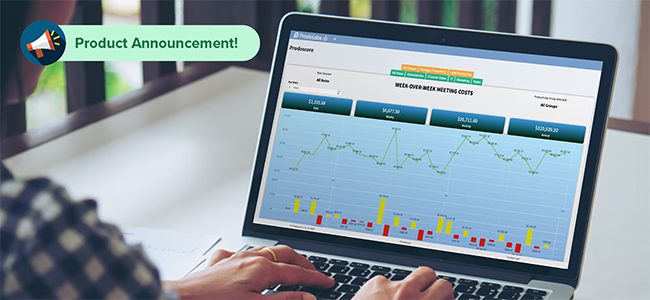4 Ways to Ramp Sales Reps Faster and Improve Productivity
Let’s assume you have hired a new sales rep to strengthen your sales force. How long will it take the new hire to ramp and start selling at their full capacity?
There are several ways to measure ramp time. One common approach is to expect that one sales cycle plus 90 days of sales training and coaching will be required for the sales rep to achieve maximum productivity. However, how to calculate is not as important as finding out how to cut the time down.
If you push people too quickly without sufficient onboarding, sales enablement tools and coaching can accelerate their ramp up but it may take them longer to reach capacity. If it takes too long for them to get started, sales reps may lose interest, and revenue targets may need to be lowered. Finding the right balance is key.
1. Use Benchmarking to Identify What “Good” Performance Looks Like
It is difficult to tell how well anyone is ramping if you don't have reliable benchmarks from within your company to compare against and train accordingly. Benchmarking helps you distinguish high performers from low performers and recognize common patterns of conduct that can help you set steps up for success from day one.
Benchmarking based on data obtained from the actual activities of sales reps (compared to anecdotes, emotion, or taking a rep's word for it), will provide answers to the following questions:
- How much time do your top performers spend sending emails and at what volume versus your low performers?
- What activities consume significant amounts of time, but yield few results?
- Which types of activities and what cadence should new reps be focused on to quickly start reaching quotas?
When you have identified the ideal behaviors of high performers, you can learn how to train better and scale new reps for quick success.
2. Introduce a Buddy System for New Reps
Pairing new hires with high performing mentors is one of the easiest ways to speed up sales ramp time. A Sun Microsystems study by Wharton Business School found that individuals with a mentor had a 23% higher retention rate within the organization. Meaning, not only did they stay longer, but they also outperformed their peers.
However, not all reps should be mentors.
Sales leaders want to look for reps doing the right kinds of activities to close deals, rather than the "lone wolf" reps who may attract the most business but often rely on their network and personality to succeed, which are not scalable, or coachable.
Using data to benchmark sales performance will help you identify not just the top-performing reps, but also the top performers who followed proper workflows and exhibited the right behavior.
3. Coach Based on Leading Indicators, Instead of Past Performance
In the past, sales coaching has long been focused on outcomes and performance. What were sales reps doing and not doing? What was and wasn't working? Coaching based on outcomes puts managers in a reactionary disciplinarian role, rather than a proactive one.
When you use activity data to capture insights, you discover key leading indicators that let you course-correct with actionable coaching. Not only does this approach make reps more productive, but it can also shift the direction of at-risk deals.
4. Increase Coaching Effectiveness with Data
Sales managers often rely on asking reps to self-report on their performance and deal progress, which can be subjective and overly optimistic. In a survey by CSO, evaluation of pipeline was rated the most significant problem, with 47 percent of companies responding that sales teams are too subjective in their projections. It may lead coaches to misidentify coaching needs and spend time on areas that neglect underlying needs.
Once coaches have access to data, they can stop asking reps about how deals are going and focus on tracking them. One-on-one meetings can be used to discuss account strategies and creative ways to engage the buying group, rather than make guesses about the possibility of closing a deal.
Start Ramping Faster and More Effectively
Coaching and setting up your reps for performance is hard and even harder when you’re relying on "gut feeling". When you use a data-driven approach to distinguish top performers based on productivity, you can not only ramp reps quickly, but also scale your team more efficiently.
You need a tool that can capture sales reps' activities and gives sales leaders the insights they need to benchmark success. Prodoscore not only helps you ramp reps faster with a single performance score, but it also displays it in such a way that it is easy to access, manage, and act on.
Want to learn how we can help?

